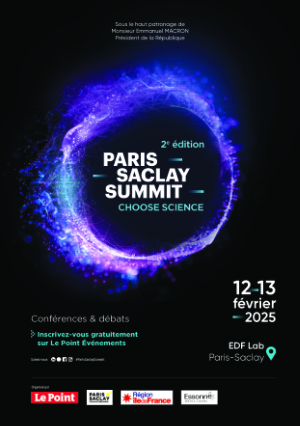PhD in Physical Chemistry: Detection of Criegee intermediates and investigation of their reactions in Earth’s atmosphere
| ABG-127460 | Sujet de Thèse | |
| 08/12/2024 | Autre financement public |
- Chimie
Description du sujet
The composition of Earth’s atmosphere and its ability to respond to pollution and climate change is
maintained by oxidation reactions involving short-lived radicals. In particular, thousands of different
organic radicals are present in the atmosphere, such as Criegee intermediate (CI), resulting from the reactions of unsaturated organic compounds with Ozone. Despite several decades of research, these CI remain very difficult to observe in laboratory and have never been observed in the atmosphere. Thus many questions remain on their reactions. This PhD position will take place within an on-going European Research Council (ERC) Advanced Project and have for specific objective to investigate the use of Proton Transfer Mass Spectrometry to detect these radicals and to study their reactions in laboratory. The results will bring new information on the reactions of these radicals that will improve the understanding of the atmosphere’s chemistry and oxidation cycles.
Prise de fonction :
Nature du financement
Précisions sur le financement
Présentation établissement et labo d'accueil
KTH Royal Institute of Technology in Stockholm has grown to become one of Europe’s leading technical and engineering universities, as well as a key centre of intellectual talent and innovation. We are Sweden’s largest technical research and learning institution and home to students, researchers and faculty from around the world. Our research and education covers a wide area including natural sciences and all branches of engineering, as well as architecture, industrial management, urban planning, history and philosophy.
Site web :
Intitulé du doctorat
Pays d'obtention du doctorat
Etablissement délivrant le doctorat
Ecole doctorale
Profil du candidat
To be admitted to postgraduate education (Chapter 7, 39 § Swedish Higher Education Ordinance), the applicant must have basic eligibility in accordance with either of the following:
• passed a second cycle degree (for example a master's degree), or
• completed course requirements of at least 240 higher education credits, of which at least 60 second-cycle higher education credits, or
• acquired, in some other way within or outside the country, substantially equivalent knowledge
In addition to the above, there is also a mandatory requirement for English equivalent to English B/6.
In order to succeed as a doctoral student at KTH you need to be goal oriented and persevering in your work. During the selection process, candidates will be assessed upon:
• the strength of the background in physical chemistry,
• the motivation for experimental work,
• the interest for environmental topics,
• the extent of problem-solving skills and abilities to analyse and work with complex issues,
• the self-motivation, and the ability to work detail- and goal-oriented,
• ability both to work independently and to collaborate with others.
Vous avez déjà un compte ?
Nouvel utilisateur ?
Vous souhaitez recevoir nos infolettres ?
Découvrez nos adhérents
 Institut de Radioprotection et de Sureté Nucléaire - IRSN - Siège
Institut de Radioprotection et de Sureté Nucléaire - IRSN - Siège  Groupe AFNOR - Association française de normalisation
Groupe AFNOR - Association française de normalisation  Nokia Bell Labs France
Nokia Bell Labs France  ONERA - The French Aerospace Lab
ONERA - The French Aerospace Lab  PhDOOC
PhDOOC  Tecknowmetrix
Tecknowmetrix  MabDesign
MabDesign  CESI
CESI  ANRT
ANRT  ADEME
ADEME  Généthon
Généthon  Ifremer
Ifremer  Aérocentre, Pôle d'excellence régional
Aérocentre, Pôle d'excellence régional  TotalEnergies
TotalEnergies  MabDesign
MabDesign  Institut Sup'biotech de Paris
Institut Sup'biotech de Paris  SUEZ
SUEZ  CASDEN
CASDEN  Laboratoire National de Métrologie et d'Essais - LNE
Laboratoire National de Métrologie et d'Essais - LNE



